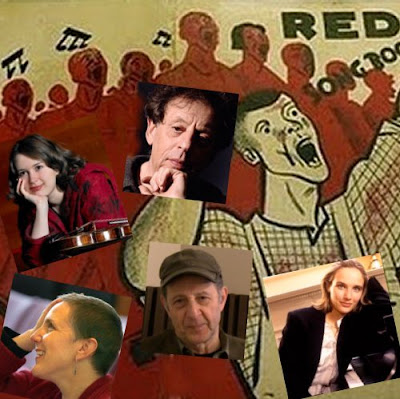There are two sides to every argument
Yesterday the European Union Youth Orchestra announced it was to cease operations from September 2016 due to the termination of funding from the European Union. That is truly terrible news and everything possible must be done to allow that fine orchestra to continue its invaluable work. But the EUYO's case is not being helped by the classical music establishment. For example, Norman Lebrecht led with the hysterical headline that the European Union had "abolished the orchestra". Which is simply not true. The EU chose not to continue their funding; which may be a very bad decision. However the decision to cease operations was made by the orchestra itself, and the circumstances leading up to that decision deserve closer examination.
Funding in roughly three equal parts from box office income, sponsorship, and public sources has been the model in other music institutions - see my article on Aldeburgh Music. Public subsidy for classical music is being reduced, and audience numbers are not increasing. Which means - whether we like it or not - commercial sponsorship has become a vital source of income for orchestras. But available information shows that although the EUYO is supported by a number of trusts and charitable foundations, its first and only 'multiannual corporate partner' did not come on board until spring 2015. However the orchestra's longstanding EU funding stream ended early in 2014, since when it has have survived on interim EU funding which "could not sustain the Orchestra". Which means the financial crisis must have been on the horizon since 2013.
The orchestra states that it "has been in regular contact with the EU to attempt to find alternative funding from the EU", but makes no mention of other attempts to restructure its finances and become less dependent on the frangible EU subsidy. The EU has directly financed the EUYO for 38 years, which makes the ending of funding particularly unbearable. But can the EU, which faces catastrophic change triggered by the Middle Eastern humanitarian tragedy, and which is under schismatic pressure to reduce its own expenditure, really justify funding an orchestra in these very different and difficult times?
For every complex problem there is an answer that is simple and wrong. And, quite predictably, the classical music establishment led by Norman Lebrecht has come up with the simple and wrong answer of launching a vitriolic personal attack on the EU commissioners. These, incidentally, are the same commissioners who are responsible for the policies that allow music students to move freely within the European Union, a policy that Lebrecht and others have praised lavishly recently.
The EU is wrong to end the orchestra's funding in this way. But from the available facts - and I welcome clarification and correction - it appears that both the EU and EUYO could have done a much better job of managing the transition to a different funding structure. If classical music is to be taken seriously in Brussels and elsewhere it needs advocates who can argue its case persuasively while recognising that the geopolitical and financial landscapes are undergoing seismic change. We need the European Youth Orchestra. But we also need music advocacy that is both convincing and balanced. Information on how to support the European Union Youth Orchestra in its fight for survival is available via this link.
Also on Facebook and Twitter. Any copyrighted material is included as "fair use" for critical analysis only, and will be removed at the request of copyright owner(s).










Comments